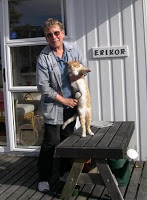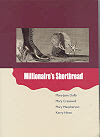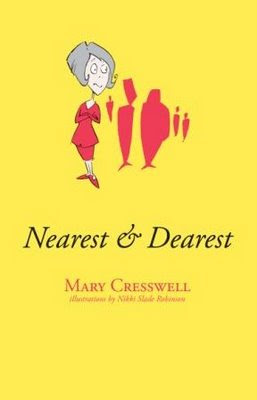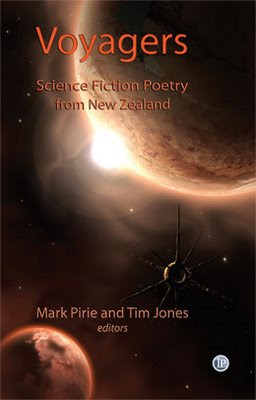
Iain Britton had his first collection of poems, Hauled Head First into a Leviathan, which was a Forward Poetry Prize nomination, published by Cinnamon Press (UK) in February 2008. Interactive Press (Australia) is about to publish his second collection, Liquefaction.
Iain, let’s start with Liquefaction, your new collection. What would you like readers of this blog to know about it?

Liquefaction is a collection of 35 poems following no specific theme, although I would like to think my work does have connecting lines of thought that can be identified when one reads through it. Each poem should be approached as a portal for the eyes to ‘walk’ into, for the reader to pass through and hopefully experience something different and then elicit pictures, images, word associations that they will find interesting.
The collection will be released on 15 May and is available through www.amazon.com or it can be ordered directly through Interactive Publications – www.ipoz.biz/Store/poetry.htm.
At the moment, my understanding is that the collection will be launched in New Zealand in July 2009, when Interactive Press will also be promoting two other NZ publications – Voyagers: Science Fiction Poetry from New Zealand, editors Mark Pirie and Tim Jones, plus The World Cup Baby by Euan McCabe. I presume the three books will then be available in bookshops in New Zealand.
You have been extensively published overseas, and your previous collection, Hauled Head First into a Leviathan, was published by Cinnamon Press in the UK and nominated for the Forward Poetry Prize for Best First Collection. Have you published primarily overseas by choice, or is that just how things worked out?
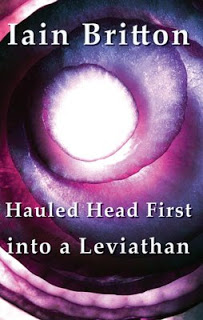
As a poet, I enjoy the challenge of publishing offshore and watching how my poems are accepted or rejected and also observing how NZ poetry is generally received overseas. We have many fine poets pushing their poems around the world and it’s great to see we are prepared to promote this aspect of our culture internationally. It’s a huge and essential learning curve to try and stand beside the best poets in the UK and US and elsewhere. I see everything ‘right’ in that.
How long have you been writing poetry, and what motivated you to start?
I have been writing poetry seriously since my first NZ publication in 2000. Prior to that I had a long haul through years of writing – completing 5 very unpublishable novels, all now consigned to some bin. I also had a number of years spent writing plays in the UK. I really enjoyed writing plays and even had the audacity to try to get major repertory theatres to accept them … of course, they didn’t! However, poetry has always been a real life force within me, so it was only a matter of time till mind, body and soul coalesced and began pushing the pen with a degree of success.
Can you identify poets, or poetic movements, that have influenced your own poetry, and if so, who or what are these?
Learning to be a good poet requires total commitment and an inner sense of belief in oneself, that this is what you want to do, combined with a feeling of allowing yourself to be driven by it. I have had the privilege of seeing/hearing such great poets as Thom Gunn, WH Auden, Robert Lowell, Octavio Paz, Yevgeny Yevtushenko, Robert Graves and many others during years spent in London. It is also where I first heard Fleur Adcock read her poetry. Once I had decided that poetry was what I wanted to do, I was hooked.
My reading has been wide and varied and I have involved myself in most movements of one sort or another. The Americans of the middle and latter part of the 20th Century impressed me with their willingness to experiment and push literary boundaries. Many poets have influenced my writing over the years and each one has contributed to my ability as a poet eg T S Eliot, Dylan Thomas, Robert Lowell, Sylvia Plath, Rae Armantrout, Robert Creeley, Seamus Heaney, John Ashbery, August Kleinzahler, Charles Bernstein, Jorie Graham, the NZ poets Allen Curnow, James Baxter, Hone Tuwhare, Bill Manhire and so on. Even the great Romantics have a place in my learning. Perhaps, my small knowledge of Te Reo and Tikanga Maori and all they entail has been vital to the sounds and rhythms of my writing also.
Consequently, you can see the field of influence is huge and those groups of individuals associated with poetic movements are part and parcel of this learning process too.
Your poem “Departing Takaparawha” is included in the forthcoming anthology Voyagers: Science Fiction Poetry from New Zealand. Do you write much poetry that falls within the “speculative poetry” genres (science fiction, fantasy, horror), or were your submissions to that anthology fairly much a one-off?
This is an interesting question for me to answer as my poetry probably does at times verge on the fantastic. For many poets the metaphor is an integral literary device and this can lead to highly imaginative pieces of work. My poetry could be said to tend towards the surreal sometimes. It is open to many interpretations but I don’t write with any exclusive kind of poetical form in mind.
Do you regard yourself as an “Auckland poet”, or is it simply the case that you are a poet who lives in Auckland? Is there such a thing as a distinctively Auckland poet, and if so, what makes an Auckland poet distinctive?
My sister-in-law, who is based in the UK, once asked me a similar type of question after a poetry reading I had given at the London School of Economics a few years ago – whether I considered myself a poet (for everyone) or a NZ poet. My answer was ‘a poet first and foremost’. This applies also to the idea of being an Auckland poet or not. I don’t think of boundaries when it comes to poetry. Although I am aware of these city differences, I don’t particularly espouse to any of them. Good poetry should cross borders and touch hearts regardless.
Do you enjoy performing your poetry, and are you planning launches, readings and so forth to mark the publication of Liquefaction?
Yes, I enjoy the challenge of reading my work, rather than performing it. Reading is never easy. The inner voices are an interesting mob to deal with when you stand and deliver. They determine the sound, rhythm and nuances and I feel I must do justice to the poem that has been channeled through me. It is a big responsibility to get it right. But that is what being a poet is all about for me.
I hope to promote my poetry collection with readings at the launches, which are to be in July. The timing will be important to enable this to happen. As yet, I have no dates, but I know Interactive Publications are well into the planning stages.
On a final note relating to Liquefaction, I wish to express my gratitude and thanks to Gretchen Albrecht, for providing the incredible cover image from Chorus 2008.

